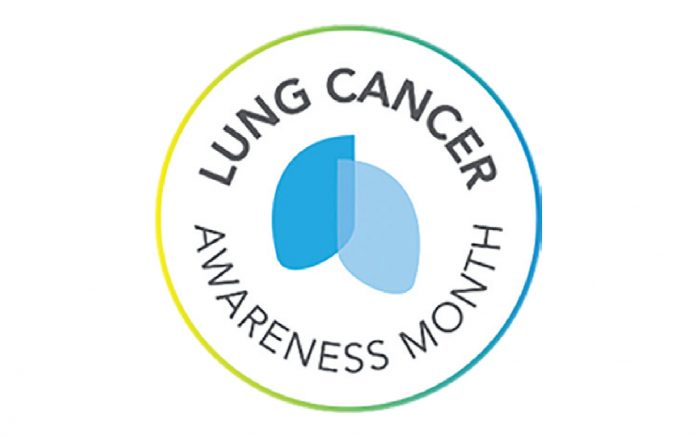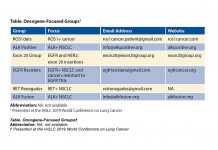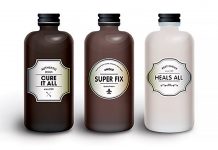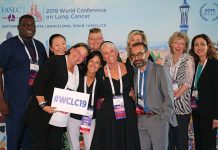By Keightley Amen, BA, ELS
Posted: October 2017
This November, survivors around the world will celebrate the second annual Lung Cancer Awareness Month (LCAM) Consortium. Together, they will celebrate a unique, new initiative that spreads hope and shares progress in the fight against lung cancer. Led by IASLC, a rapidly growing partnership of advocacy groups and survivors is telling the world: “Hope Lives—More Research. More Survivors.”
The joint public-awareness campaign aims to teach the public that anyone can get lung cancer, reduce the stigma associated with the disease, raise money for research, and reduce mortality and suffering by disseminating information about recent scientific advancements.
Silvia Novello, professor of medical oncology in the Department of Oncology at the University of Turin in Italy, stressed the importance of getting the word out. “A lot has been achieved, but a lot more needs to be done. We believe everyone can have an impact, so let’s join our efforts and work together to make lung cancer a chronic disease and to help lung cancer patients not to feel isolated and discriminated against, because lung cancer doesn’t discriminate!”
The flagship of the initiative, LCAM. org, shares stories of survivors to inspire and inform others about many facets of the disease; for example: “Become Your Own Best Advocate,” “Lung Cancer Can Happen to Anyone,” “Always Seek a Second Opinion,” and “Three Years and Thriving.” The stories are intended to showcase the diversity of those affected by the disease: all races, young and old, smokers and non-smokers.
Janet Freeman-Daily, a lung cancer survivor and a member of the LCAM working group, has made it “pretty much a full-time job” to help others fighting the disease. Diagnosed in May 2011 with non-small cell lung cancer, Freeman- Daily has had no evidence of disease in four years and counting. “Advocacy gives me a purpose,” she said. “When you face death and realize you might not even have a year left, you start to wonder: Why am I here and what difference do I make? Even if I have days when I’m not feeling so good, I can still do something worthwhile. I can get online and help other patients.”
She helps countless others by writing, speaking, getting involved with research projects, tweeting factoids, and building a Facebook community, and now by helping the LCAM initiative find patient stories and get the word out.
The campaign also profiles other lung cancer advocacy organizations that support patients and caregivers, provide physicians with more information about screening and clinical trials, and educate the public and healthcare community about tumor testing and targeted therapy. It is building momentum quickly:
• More than 40,000 people are following LCAM on Facebook
• At LCAM.org, more than 60 survivors and caregivers have shared their stories, and the site has had more than 30,000 visits
• More than 20 global partners are participating in the campaign
• During the 2016 LCAM campaign, more than 25,000 pins, T-shirts, bracelets, and posters were distributed
• Print newspaper ads have reached a circulation of almost 700,000
• The campaign’s videos have been viewed by more than 78,000
• The LCAM YouTube Channel has featured 15 videos, which have received more than 2,000 views
However, Freeman-Daily said there are still so many obstacles to overcome. “Sometimes you wonder if you’re making any difference. Sometimes you get tired of all the barriers you run into,” she said, citing a lack of knowledge about clinical trials, limited access in rural areas and for minority groups, doctors telling patients to “get their affairs in order” rather than telling them to be tested for EGFR, ALK, ROS-1 and other genetic markers, scarce funding for research, the small survivor community and therefore small advocacy community, and the stigma that lung cancer is self-inflicted.
“The awareness month is good because you see the number of people who are living longer, being able to show a positive picture of lung cancer, not just the smoking stuff. It does give people hope.”
In its second year, LCAM will focus on adding more global partners, including additional advocacy groups and medical institutions as well as more international participants from Israel, Latin America, Australia, and more. The partners also plan to expand the diversity of featured patients and participants, develop additional educational and marketing materials (photos, videos, and an educational webinar), build social media interaction and sharing, showcase more scientific advances, and increase sponsorship to build staff and the advertising campaign.
Novello implored others to get involved worldwide to keep the momentum going. “Lung cancer is the first cause of death due to solid cancer in several countries, and all the efforts in terms of primary prevention, proper diagnosis, and adequate treatment need to be shared to cope with the disease,” she said. “To make this message universal and to disseminate it, it is extremely important to join the IASLC in its program of awareness in November.”
To learn more or participate, visit LCAM.org, sign up on the site (http:// lcam.org/contact/) to receive email updates, follow the campaign on Facebook (https://www.facebook.com/ LCAM.org/) or Twitter (https://twitter. com/LCAM_org), or contact Kristin. [email protected]. ✦
The LCAM initiative is supported by independent educational grants from Eli Lilly and Company; Bristol-Myers Squibb; Merck & Co., Inc.; and Helsinn.











